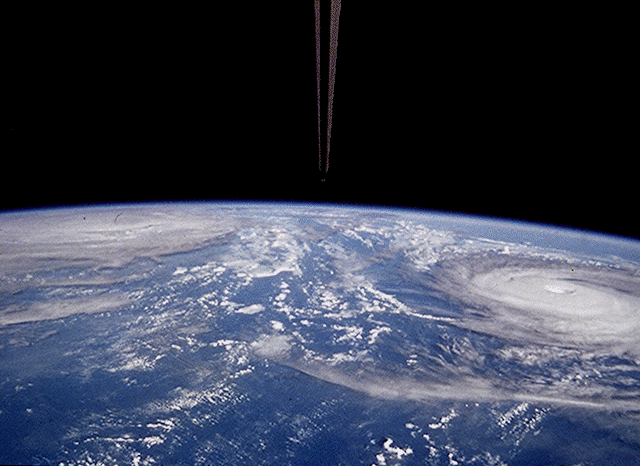|
Chewing On The Religious Right And Climate Change
In early 2006, following the successful opposition by the IRD and other Christian right groups and alliances opposed to a National Association Of Evangelicals resolution that would have urged the United States government to take immediate and serious action to mitigate global climate change, I had a conversation with a leader ( who will remain unnamed ) in the grassroots effort to change public awareness on Global Warming. I explained how a small and previously obscure nonprofit organization called The Institute On Religion And Democracy had played a significant part in lobbying the NAE to vote against the resolution, and I suggested that deeper knowledge of the Christian right would be profitable for American environmental leaders. My reasoning was distinctly old-school : one of the central tenets of strategy, per such classic thinkers on strategy such as Sun Tzu ( whose writing is common homework for members of the US military ) , is to know one's opponent. What sort of response did I receive ? That is the punchline. You can read on or simply skip to the end of this essay for the reply to my question.
Meanwhile.... Large US environmental organizations appear to have been almost totally oblivious to the possibility that significant US movement on Global Warming, or even a major shift in US government policy on the subject, might come from a US evangelical initiative - despite the fact that American evangelicals represented a major chunk of the GOP's political base and the accompanying fact that at that time 70% of American evangelicals - as reported even by right leaning news sources such as WorldNet Daily, saw Global Warming as a " 'serious threat' to the future of the planet" and wanted government to take action even if the economy was harmed. But, outside of the growing evangelical environmental movement, the US environmental community was not prepared or equipped to play any sort of significant role in the NAE vote, and in the end old-guard players and their associated organizations - Tim LaHaye, James Dobson, Pat Robertson, the IRD, ICES, and other antienvironmentalist forces prevailed. Now, in September of 2006, the Kansas City Star reports:
Before watching the end of the world, hundreds of movie viewers bowed their heads. But, what is the deeper structure - even at a very basic level - of the American Christian right ? Basic sorts of divisions such as premillennial vs. postmillennial Christianity seem to be off the radar screen, and Christian reconstructionism remains an exotic ideology relegated to some 19th Century African Congo of the American environmentalist imagination... In short, the American environmental movement is in danger of becoming a bystander to the political conflicts that determine the course of battles it professes to hold most dear. That does not validate the alleged "Death Of Environmentalism" but neither does it not bode well for the mainline environmental organizations. In the end, environmentalism - as a distinct ideology or political movement - may disappear as it succeeds and becomes a part of mainstream American culture. Richard Bartholomew, at Bartholomew's Notes On Religion, highlights how the "conversion" of prominent American evangelical Richard Cizik seems to have little to do with the efforts of the mainline environmental organizations - it seems to have been mainly an "in house" affair within the evangelical leadership community. …Mr. Cizik said that [Rev. Jim Ball of the Evangelical Environmental Network] "dragged" him to a conference on climate change in 2002 in Oxford, England. Among the speakers were evangelical scientists, including Sir John Houghton, a retired Oxford professor of atmospheric physics who was on the Intergovernmental Panel on Climate Change, a committee that issued international reports. …Mr. Cizik and Mr. Ball then asked Sir John to speak at a small meeting of evangelical leaders in June in Maryland called by the Evangelical Environmental Network, the National Association of Evangelicals and Christianity Today, the magazine. The leaders read Scripture and said they were moved by three watermen who caught crabs in Chesapeake Bay and said their faith had made them into environmentalists.
So - to return to the conversation I mentioned earlier, what sort of response did I receive ? : "How is this relevant to me ?" was the reply, and I had no reply but to quickly change the subject. A bit later, in retrospect, I realized this : environmentalism is steeped in the realization that all of human life is supported by the greater sphere of biological life on Earth and so - in a very real sense - human life is dependent on the Global environment. Yes, indeed. However, the rough converse now holds as well : the wellbeing of the global biosphere - the wellbeing of all life on Earth - is now dependent, for a short moment at least - on the human political sphere. We now are making decisions that will impact the future of life on Earth for millennia, millions of years, or forever. Somehow, amidst all of the breadth of that perspective, the fact that many of the "we" who shape the American political realm are Christian or that the topology of that Christian landscape should be basic to those who profess to care about and who are trying to shape national politics... Somehow those aspects have largely been lost to American environmentalism. And what of those aspects ? See my Talk To Action story, Bush Global Warming U-Turn Leaves Anti-Environmentalist Christian Right Out On A Limb ?
Chewing On The Religious Right And Climate Change | 2 comments (2 topical, 0 hidden)
Chewing On The Religious Right And Climate Change | 2 comments (2 topical, 0 hidden)
|
||||||||||||
| ||||||||||||




 print page
print page
